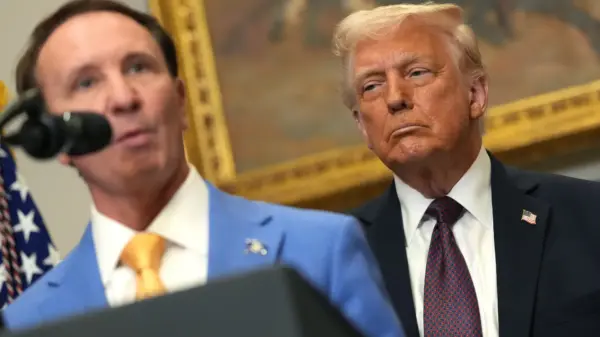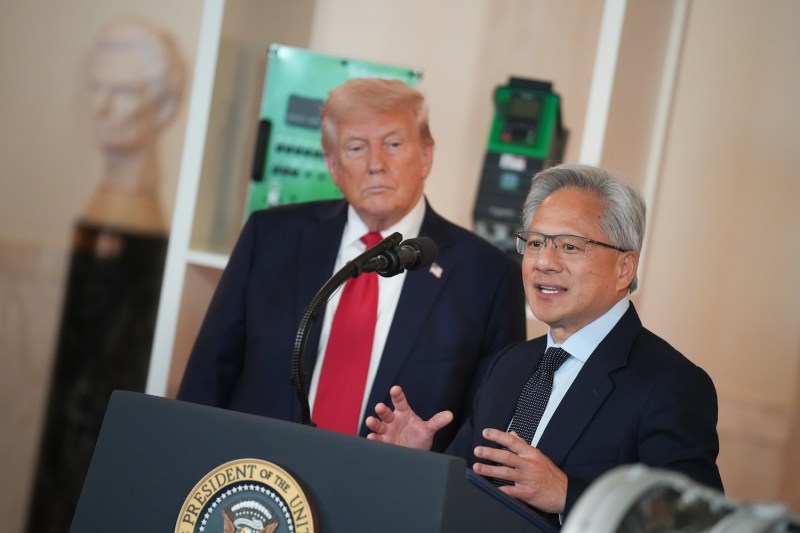Recent shifts in U.S. technology policy towards China have raised significant concerns regarding national security. The Trump administration has reversed its stance on two key areas of concern: the sale of high-performance H20 chips by Nvidia and the ongoing scrutiny of TikTok, owned by ByteDance. Initially opposed to the sale of these chips to China due to their potential military applications, the administration has now moved to accelerate sales in exchange for a share of profits. This reversal comes just as discussions about enhancing chip sales to Saudi Arabia gain momentum, despite China’s growing presence in that region.
The administration has also taken a convoluted approach to TikTok, once advocating for a ban citing national security risks. A bipartisan effort in Congress aimed at enforcing such a ban has now seemingly stalled, with reports suggesting that a deal might allow Chinese entities to retain a stake in the company and influence its algorithm.
This inconsistency in U.S. policy could have long-lasting repercussions. It risks creating a strategic vulnerability that undermines U.S. credibility regarding the security threats posed by Chinese technology. The implications for foreign policy, intelligence partnerships, and supply chain cybersecurity could be detrimental.
Implications of Inconsistent Policy
The recent actions reflect a troubling pattern where U.S. economic interests appear to outweigh national security concerns. Over the past century, and particularly in the last two decades, the U.S. government has increasingly blurred the lines between economic security and national security. A robust economy is essential for funding advanced military capabilities, and critical technology supply chains are susceptible to cyber-espionage.
Historically, the first Trump administration’s struggles with Huawei serve as a cautionary tale. The administration labeled Huawei a security threat while simultaneously indicating that it might overlook these concerns for the sake of a trade deal. This perceived inconsistency led even close allies, such as the United Kingdom, to question the sincerity of U.S. national security claims. It took years for the UK to align with U.S. policy regarding Huawei’s 5G ban.
Now, as of January 2024, the Trump administration is reportedly reconsidering its earlier stance on Nvidia’s H20 chips. Initially designed to limit China’s advancement in artificial intelligence, this policy shift signals that national security considerations may be negotiable. Companies across the globe are likely observing these changes, with allies and partners noting how quickly U.S. security measures can be compromised for economic gains.
The credibility of the U.S. position on technology exports to China is now under scrutiny. Previously, the administration’s insistence that Nvidia could not sell B30A chips to China was a strong stance. That position now appears weakened, raising questions within the tech industry and among international allies about the reliability of U.S. commitments.
The Future of U.S. Tech Security
The inconsistent approach to TikTok further complicates matters. The Trump administration’s initial hardline stance has been replaced with a more lenient position, suggesting that the app may not pose as significant a risk as previously thought. This shift allows ByteDance and Chinese investors to retain a substantial stake in TikTok, while the details surrounding algorithm oversight and data security protections remain ambiguous.
As the U.S. government faces the challenging task of addressing serious national security risks linked to Chinese technology, the credibility of its claims may be in jeopardy. Future calls for action, whether targeting specific technologies or advocating for multilateral bans, may be met with skepticism from allies who could doubt the U.S. commitment to genuine security interests.
The challenge becomes even more pronounced in a globally interconnected digital landscape. Effective measures against technology threats from China require collaboration and genuine buy-in from allies and partners. If the U.S. continues to exhibit inconsistency in its policies, it risks losing the trust necessary to build robust coalitions against shared threats.
In conclusion, the ongoing flip-flopping of U.S. technology policy towards China diminishes its credibility and could have far-reaching consequences. Without a clear and consistent stance, the United States may find itself increasingly isolated in its efforts to mitigate the risks associated with Chinese technology. The need for a unified, strategic approach to national security and economic interests has never been more critical.






































































